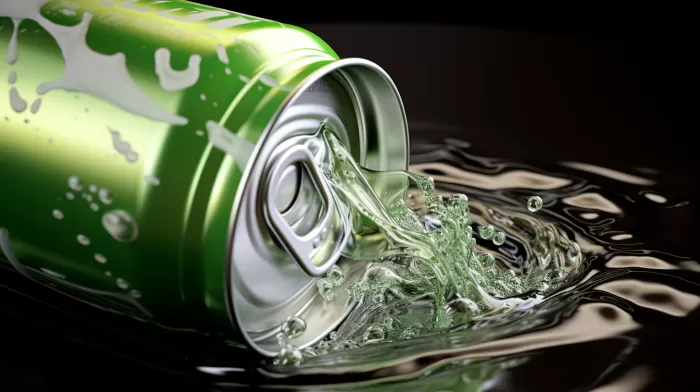The consumption of sugary drinks has long been associated with risks to heart health, but what if the danger doesn’t just come from the beverages themselves? As it turns out, the containers they come in can be just as harmful, and it seems that aluminum cans, in particular, could be silently putting your health at risk.
Bisphenol A (BPA) is a chemical substance used in the lining of aluminum cans, and studies have shown that it can leach into the beverages they contain, potentially exposing consumers to a range of health problems. This issue may be especially concerning for children, who may be more susceptible to the harmful effects of BPA exposure.
BPA’s Hidden Dangers
So, what are the health risks associated with BPA? While research is still ongoing, there’s a growing body of evidence to suggest that the chemical may contribute to heart disease, kidney dysfunction, and obesity in children and adolescents. One study, in particular, found that nearly 92% of children over six years old had detectable levels of BPA in their urine.
This is a cause for concern given BPA’s potential links to a variety of health issues. A recent study published in the Journal of the American Medical Association found a significant association between obesity and children with higher concentrations of BPA in their urine, and other research has shown that the chemical can interfere with hormones in both humans and animals, leading to infertility and developmental disorders.
The Regulatory Response
As a result of these concerns, some countries have taken steps to limit or restrict the use of BPA in food packaging. In the European Union and Canada, for example, its use has been banned altogether, while in the United States, it is currently prohibited in baby bottles and sippy cups.
However, these measures may not go far enough, as they still allow BPA to be used in other types of food packaging, such as aluminum cans, which means that millions of people continue to be exposed to the chemical on a daily basis.
Preventing BPA Exposure
If you’re worried about consuming contaminated beverages, there are a few steps you can take to reduce your exposure to BPA:
- Choose beverages in glass or plastic containers over those in aluminum cans. While BPA is also used in some plastics, it is generally found in lower concentrations than in aluminum cans.
-
Look for products labeled as “BPA-free,” as these have been manufactured without the use of the chemical, and are less likely to leach BPA into your beverages.
-
Store beverages in glass or stainless steel containers, rather than plastic or aluminum cans.
-
When preparing food and drinks for children, opt for fresh, whole foods over processed or canned products, as these are less likely to contain BPA.
A Call for Change
As awareness of the dangers of BPA continues to grow, there’s a growing demand for manufacturers to find alternative materials for lining aluminum cans. In the meantime, experts like researcher Leonardo Trasande encourage consumers to limit their exposure to BPA, particularly for children, in order to reduce the risks of cardiovascular disease and other health problems.
By choosing alternative containers and paying closer attention to the packaging of the beverages we consume, we can work together to reduce our exposure to BPA and the health risks it poses.



